Who will deliver useful AI to the masses?
The industry has been saying Apple is behind and asking when the iPhone maker would ever bring out AI -- but the industry has always underestimated Apple.
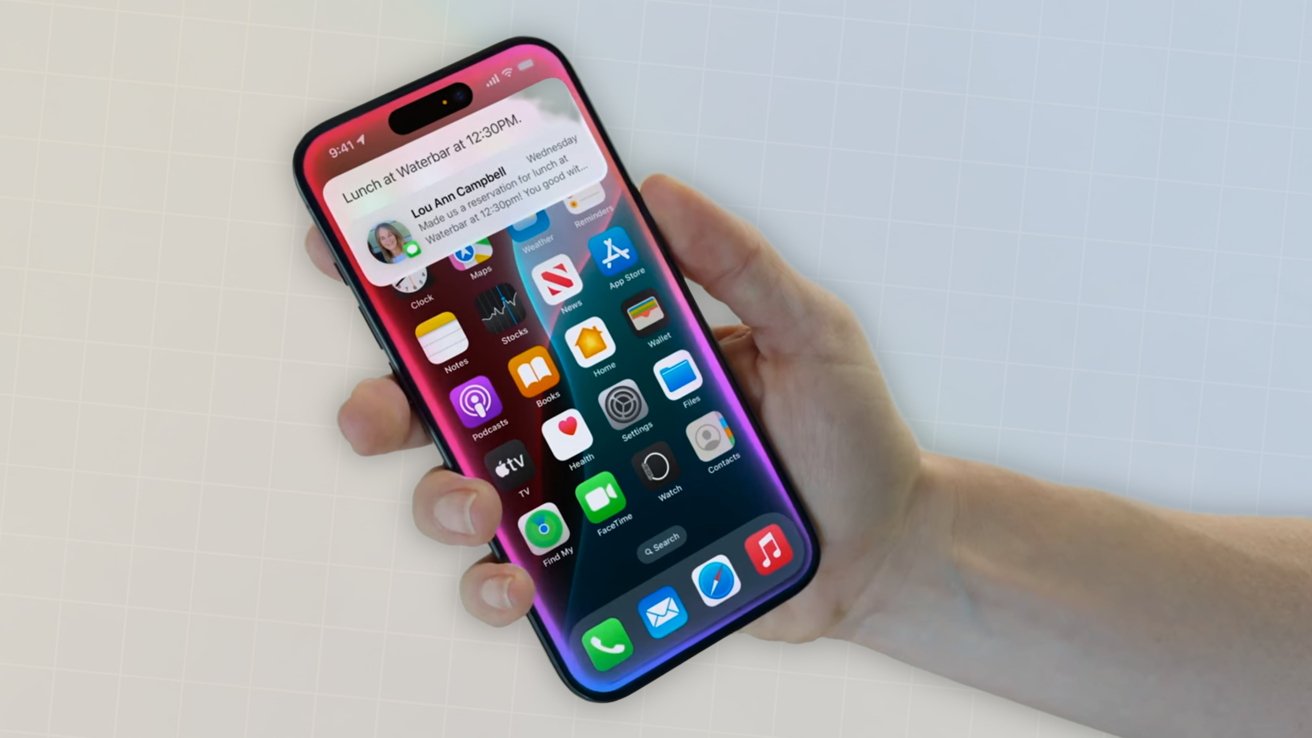
Today, toward the end of 2024, Apple Intelligence has still not yet been deployed. What frame of reference is there for postulating how important it is for "first movers" to rush out something ahead of Apple?
This all happened before
Analysts employed by Apple's competitors--and journalists looking for both sides of every issue --were both excited by the prospect of being able to report Apple being behind and unrepresented in what appears to be the latest, greatest technology.
That glee is also shared by Samsung influencers and the neckbeards praying for Google's Pixel to become relevant. Both makers --among other Android licensees-- delivered some examples of generative AI on mobiles this year, before Apple had advertised any generative AI ambitions at all.
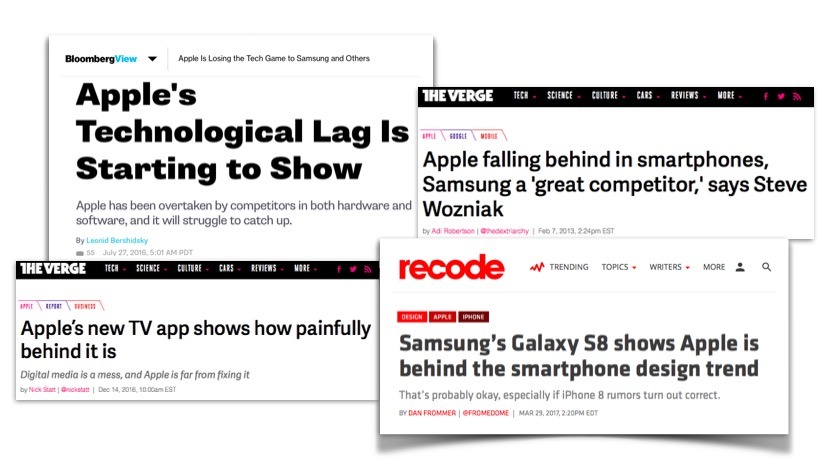
Of course, as I wrote back in 2017, when Apple is two years behind you, get your things in order. In the article, I laid out how Apple had appeared to be behind every year in some respect across the last decade.
In 2007, it was in MP3 players -- unlike iPod, Microsoft's new Zune could perform wireless sharing! That year Apple debuted iPhone, far beyond what the market was expecting. In 2008 Apple appeared to be a no-show in delivering a mobile app market--right before it took over and lead the category with the App Store, which has remained most important and commercially relevant mobile platform and apps marketplace ever since.
In 2009, Apple was supposedly never going to catch up to Blackberry in Enterprise instant messaging. That turnaround of fortunes was so dramatic they made a movie about it. It was an epitaph for Blackberry, nearly forgotten now that IM has been completely dominated by Apple in the United States where Blackberry was supposed to be the "Crackberry" of which the Enterprise couldn't get enough.
In 2010, Apple was the laggard in Push Notification Services (PNS) behind webOS, which similarly isn't around anymore. Today Apple clearly has the biggest PNS. In 2011 Google was pushing NFC and Google Wallet, which was "first" only in bragging rights once Apple belated launched its initiatives with Bluetooth 4, Continuity, and Apple Pay, a set of technologies far more advanced than tap, but also delivering working NFC payment taps that people actually used. Nobody else is even close.
In 2012 it was Samsung's plus-sized phones, eclipsed by the thermonuclear iPhone 6 that wasn't just big but also 64-bit fast; in 2013 it was Android Halo's "modern UI" that floated just before iOS 7; in 2014 it was Samsung's new and "first" wearables, eventually crushed by Apple Watch; and in 2015 it was "detachable" PC tablets like Microsoft Surface Pro, trounced by iPad Pro. I kept going if you want to read the whole article profiling every year of the last decade.
Surely today, there was no possible way Apple could ever catch up to Microsoft's sweet (suite?) deal with OpenAI that got started back in 2019, right? Bueller?
This year, Microsoft beat Apple to the punch in rushing out Copilot PC, offering generative AI as tightly integrated into Windows PCs as Bob and Clippy were. Note that both of those are only in museums now, literally next to the Zune. They could add Windows 10 Mobile and the Surface.
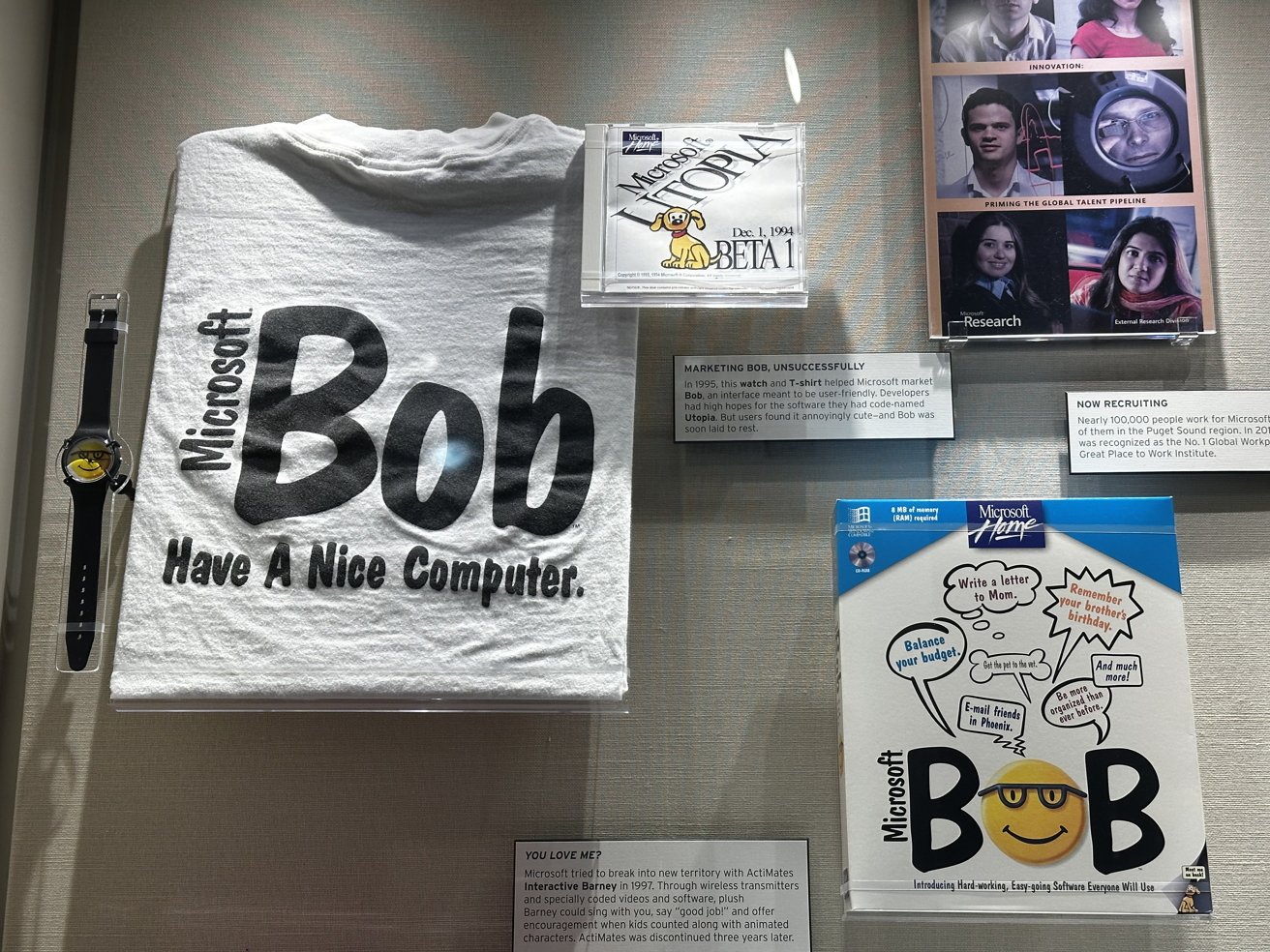
In mobiles, both Samsung and Google, among other Android makers, have rushed generative AI mobile phones to market before Apple. Who could possibly guess where things are going?
The year of generative AI, sans Apple?
At the beginning of 2023 Microsoft committed another $10 billion into OpenAI, the year that in retrospect was broadly named "the year of generative AI."
That spring, OpenAI released GPT-4. Generating content using that tool (and its peers) quickly became both widespread and concerning, as many students swapped out their writing education with simpler prompt engineering; as Hollywood executives threatened to use AI to replace writers and even actors with AI generated words and faces; and as social media exchanged active discussions about reality with passive likes of plausible fictions.
Where was Apple in 2023? It was certainly not on the generative AI bandwagon, pundits pointed out. There was apparently no generative Apple AI, outside of the broad use of Machine Learning (AI) that Apple had been baking into its iOS and macOS for many years for uses ranging from object recognition to computational photography to body movement tracking and fitness applications.
Sure, Apple had released its A11 Bionic chip in 2017 with the new Neural Engine. This neural network processor armed both iPhone 8 and Apple's next generation iPhone X with the hardware ability to perform accelerated, on-device ML. It was used most dramatically to deliver Face ID and Animoji features, but Apple's use of ML had been running broader and deeper than that.
Outside of the Neural Engine, Apple Silicon was also performing ML within its GPU and image signal processor, the engine that handles advanced computational photography. That same year, Apple also released a new machine learning framework API for developers named Core ML, which enabled third parties to leverage a variety of AI/ML tasks using whatever ML-accelerated hardware features were available.
Apple wasn't performing the kind of generative AI that tools like ChatGPT and DALL-E were making famous in 2023, but it was deeply involved in delivering AI-powered features that were far less controversial.
Apple had been actively involved in AI/ML since 2017! It even laid the groundwork for Edge AI -- performing AI on the device rather than uploading all tasks to the Cloud -- through ever increasingly sophisticated and powerful versions of the Neural Engine. Microsoft and Qualcomm are belatedly racing to catch up with the baked-in ML horsepower of Apple Silicon.
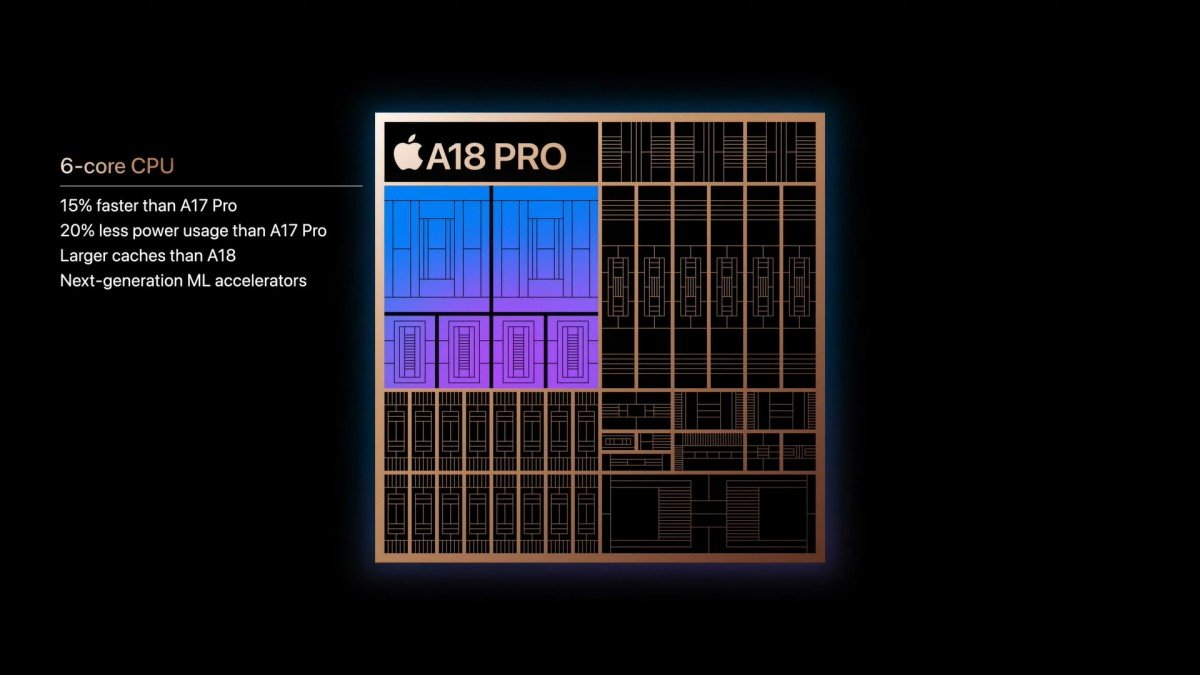
A18 delivers serious performance enhancements, including its Neural Engine
Rather than portraying the Pope wearing a puffy white Balenciaga he never wore, or cranking out a writing project so you didn't have to actually think about writing or form any new essential connections in your brain, Apple's ML used the same underlying technologies to deliver core features that were valuable to users and developers.
Even before opening up CoreML to developers, Apple had used ML internally for years prior to perform face recognition for your photos, as well as face tracking and facial landmarks in Face ID and Camera. Apple also used ML in its graphics, in making Siri voices "learn" how to sound more natural, and to power relevant information in the new Siri WatchFace that debuted in watchOS 4, along with hosts of other tasks, from text prediction to fitness tracking.
Additionally, Apple's senior vice president of Software Engineering Craig Federighi detailed that Apple would be using ML for privacy, noting that "Safari uses machine learning to identify trackers, segregate the cross-site scripting data, put it away so now your privacy and your browsing history is your own."
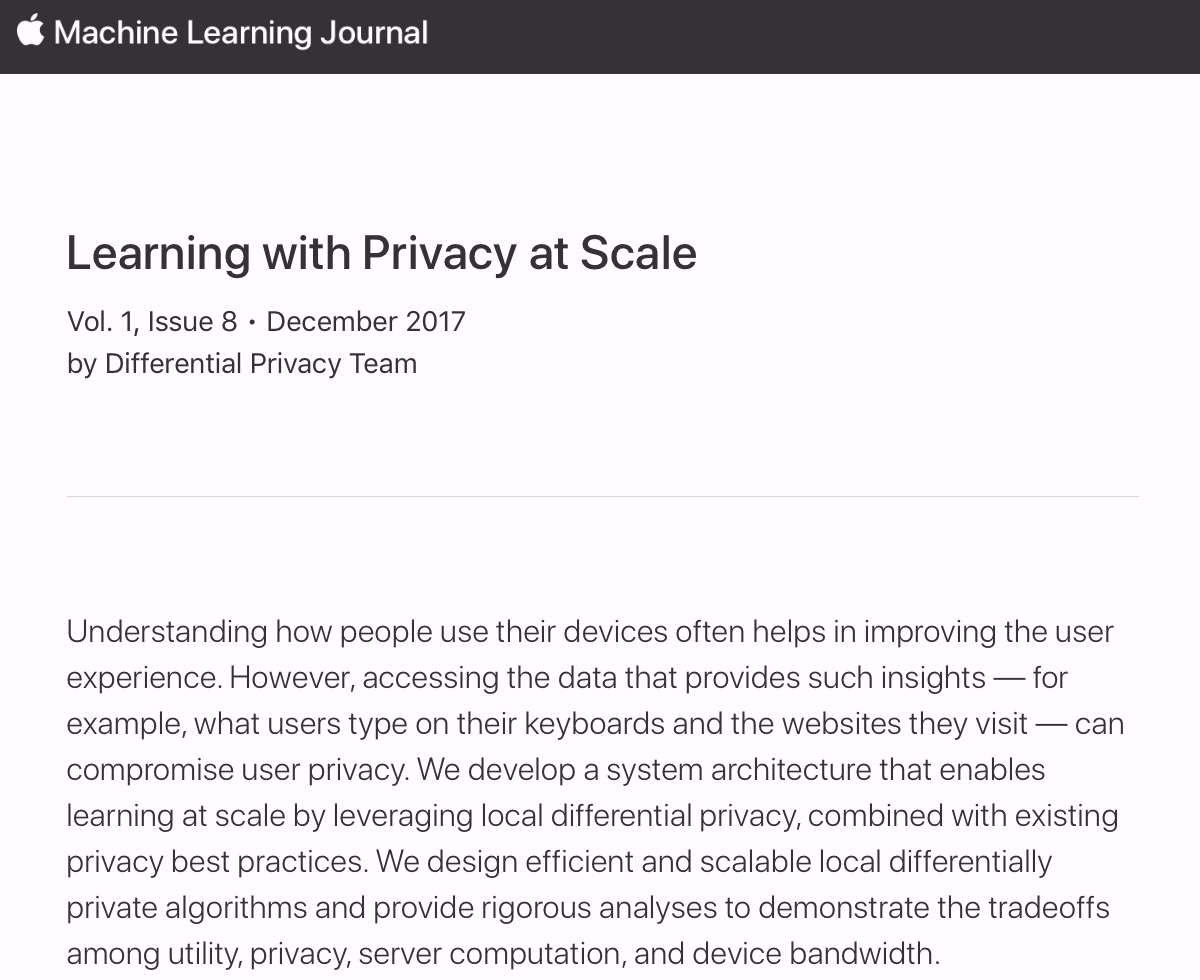
Apple has been talking about privacy and machine intelligence for years
In a variety of ways, Apple was boldly leading in useful applications of AI/ML simply by nature of the fact that iOS was the indisputable leader in premium mobile phones. So why was Apple getting harangued by a lynch mob of pundits last year, six years deep into its active release and deployment of ML hardware and software?
It wasn't because you couldn't do generative AI on a Mac or an iPhone. Despite -- or perhaps "facilitated by" -- Microsoft's billions, OpenAI released a native client app for iOS last summer, simply by nature of the fact that iOS was the indisputable leader in premium mobile phones.
OpenAI's press release for the iOS app noted at the time, "PS: Android users, you're next! ChatGPT will be coming to your devices soon."
Where was Android?
Why wasn't Android sandbagged for trailing Apple's platform in the leading generative AI app throughout all of the Year of AI? Perhaps "generative AI" was wildly overblown as an imagined problem for Apple simply by nature of the fact that iOS was the indisputable leader in premium mobile phones.
By the end of Year of AI, there wasn't any difference in the availability of generative AI tools for Apple's platforms. But this year, Samsung's Galaxy S24 and Google's Pixel 8 scrambled to be first to deliver integrated, mobile generative AI features.
Were users excited? It doesn't seem to have registered significantly in the market. More than an upgrade-compelling tentpole, their rollouts of generative AI brought some useful features that could just as well have been rolled into an app.
Features like Samsung's Live Translation are impressive and useful, but not reason to buy a new Samsung phone. "Circle to Search" allows you to identify an item and ask Google what it is. That's not even generative AI, it's an app feature using the kind of object recognition technology Apple debuted back at WWDC 2017.
Photo editing AI such as Google's "Magic Editor" and Samsung's "Generative Edit" erase unwanted objects in photos and generate a plausible background. Apps have been doing that for a while now on iOS. None of these things are essential OS-level integration of AI/ML that give one reason to switch or upgrade to a new phone, are they?
And given that the vast majority of Androids are serving as carrier friendly, good enough devices (in Samsung's nomenclature), there's no reason for Android makers to push the envelope in AI, generative or otherwise, because their mostly anemic processors can't do anything transformative anyway. They're targeted at affordability.
High-end phones are a very slim slice of the Android pie, serving typically as gimmick showpieces with bragging rights to being "the first" at something, from the rounded-screen Edge to the Folds and the Flips that all only exist because Samsung makes displays and needs to show off what it can do. They aren't driving sales volumes. They're only turning up the hype volume.
The flip side of being a pioneer is getting arrows in your back. Google's generative Gemini created more eye-rolling than excitement when it became clear that the company was desperately trying to manage hallucinations by taking a beta-stab at guardrails with a high virtue-signaling-to-noise ratio.
If anything, it appears that -- once again -- "being first" is really just priming the market for Apple's introduction.
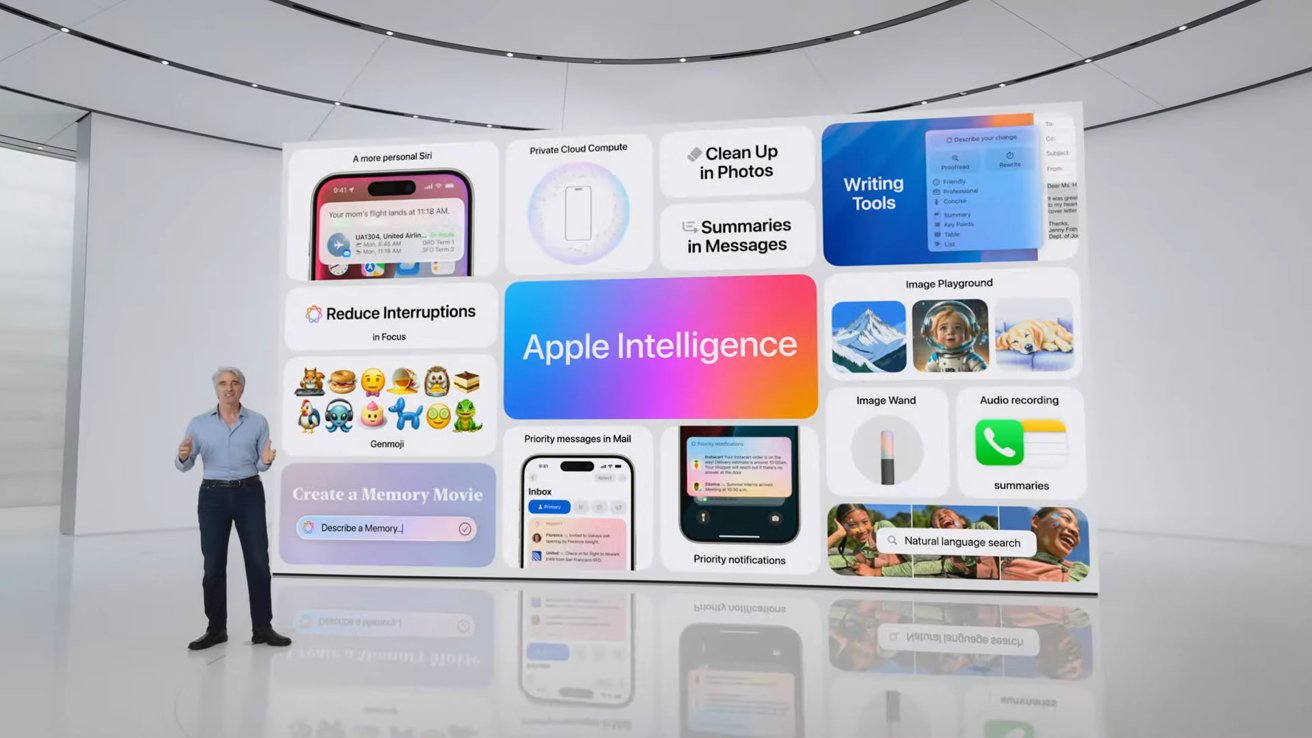
Apple Intelligence stands to be more than a chat bot
Remember how Meta incessantly promoted Oculus VR for a decade, paving the way for Apple Vision Pro to really impress the high end with disposable cash to fund the development of the future of television?
Where was Microsoft?
One can give the mass-market phone makers a pass at not delivering super-useful new technologies while being laser-focused on serving the cheap end of the market. But what about Microsoft, which was hailed as a genius corporation for shoveling so many billions into OpenAI to embrace-and-extend the latest new thing to merely be another facet of its desktop PC monopoly diamond?
I'm not going to rub Windows Phone in Microsoft's face here, but sticking to the desktop Windows, it's useful to note that the once-vaunted monopoly that Microsoft once ruled with an iron fist has been massively outpaced in sheer size by iOS. Redmond's ability to "embrace, extend and extinguish" has waned, as is clear from its total failure to launch Windows Phone leveraging its desktop. Oops I did it.
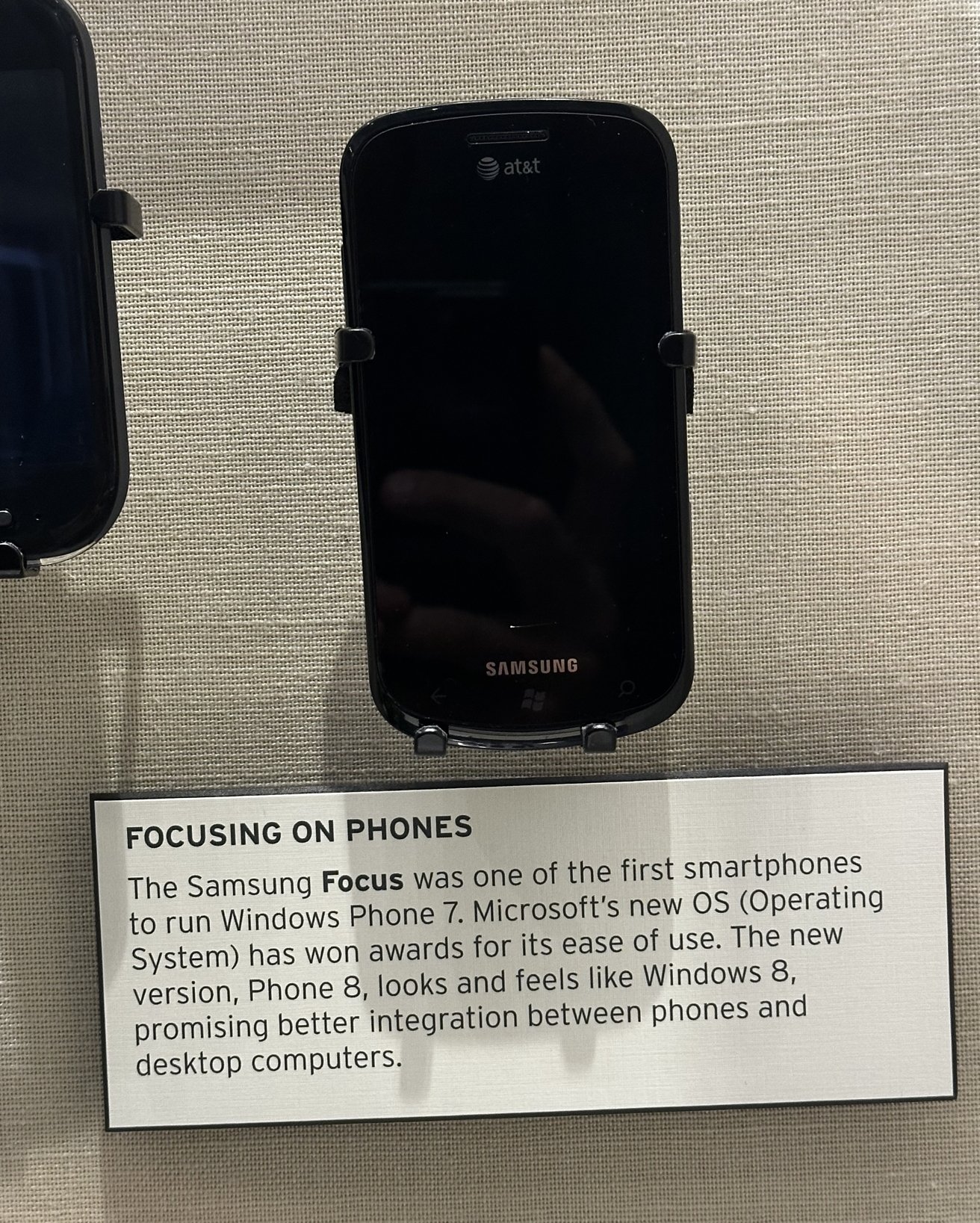
Windows Phone 8 actually is in Seattle's museum
Returning to AI/ML, it turns out, as I predicted, that Microsoft's Copilot PC wasn't mostly the glorious kernels of gold lauded by loyalists but was instead merely a turd featuring some unimpressive corn kernel cellulose.
This week, Salesforce's chief executive Marc Benioff complained in a Tweet: "When you look at how Copilot has been delivered to customers, it's disappointing. It just doesn't work, and it doesn't deliver any level of accuracy."
Benioff continued, "Gartner says it's spilling data everywhere, and customers are left cleaning up the mess. To add insult to injury, customers are then told to build their own custom LLMs. I have yet to find anyone who's had a transformational experience with Microsoft Copilot or the pursuit of training and retraining custom LLMs. Copilot is more like Clippy 2.0."
Note that Benioff isn't one of those fearful critics of AI. In a podcast, he crowed, "I've never been more excited about anything" when asked about the future of AI. Asked specifically about Microsoft's Copilot, Benioff unsurprisingly touted SalesForce's own AgentForce as a tool to build and customize AI agents.
"I think Microsoft has done a tremendous disservice to not only our whole industry but all of the AI research that has been done... And customers are so confused based on this Microsoft narrative... I don't think Copilot will be around. I don't think customers will use it, and I think that we will see the transformation of enterprises with agents, and Agentforce will be the number one supplier."
Hardly an endorsement of Microsoft's efforts, and certainly from a rival, so put it in that perspective. But again, the market has spoken and it's not excitedly chat-botting about Copilot PCs.
Microsoft's Copilot PCs are like a Google Pixel: an expensive stab at delivering a high-end, premium-priced, Apple-quality product from a company that is really only known for achieving mass market sales via mediocre cheap hardware running broadly licensed, generic software the makes a lot of compromises to run everywhere.
Apple, on the other hand, is quite famous for delivering deeply integrated hardware and software that really excels at the tasks it was designed to do.
I think it's too late to take any bets on who is going to drive mass market adoption of AI/ML tools.
Read on AppleInsider

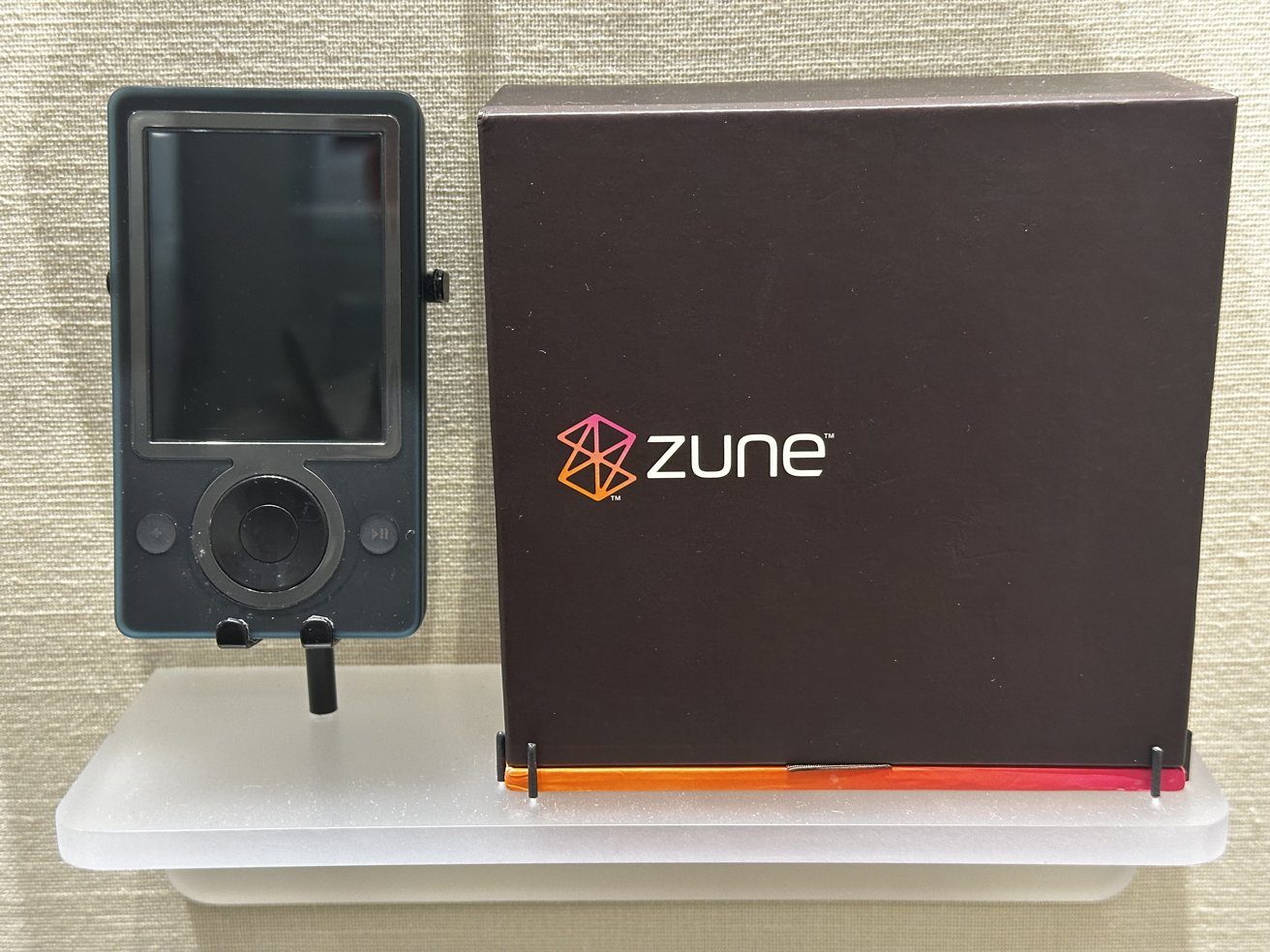
Comments
Apple has the right idea all along about how to approach "AI", as a tool that can streamline tedious tasks, but everyone else has been milked dry of their billions by snake oil salesmen promising the replace humans and human creativity and they're just beginning to see that they will only be met with disappointment.
Real artificial intelligence will be huge for mankind. When a computer takes up it's own interest to solve issues for itself, then the world will get kind of interesting.
Very true. there was a report just recently about how AI cannot really think, cannot “reason”. https://appleinsider.com/articles/24/10/12/apples-study-proves-that-llm-based-ai-models-are-flawed-because-they-cannot-reason They are useful for some things, byt the hype by the con men and grifters holding the stage is badly overselling what they can do. In the long run they may sour many people on the concept when they find out that they can’t do what they were told they would.
For me, I’m just going to make sure most of ther Apple Intelligence stuff that starts coming out next week is off. I haven’t been taken in by the hype and so far I’ve seen little if any of it that is supposed to do anything I want. The title used the word ‘useful’. None of the previews have suggested anything that I would find useful.
Another Apple competitor is gonna try it two years in a row, Qualcomm has started circulating that their next version of their Snapdragon SOC for smart phones is gonna do Apple in, This is after they oversold their partnership with Microsoft on those Elite Arm chips for laptops, which has bombed, note they recently canceled the developers kit, which was supposed to help developers port over their software to the Windows Arm SOC hardware.
Apple has done much better over the last 25 years than the menagerie of 5 companies who by in large can’t do hardware and software anywhere close to Apple particularly creating new ecosystems, combining both hardware and software, (most have engaged in me too projects) when creating new ecosystems iteration over time is the name of the game, Apple Vision like Apple OS, Apple Silicon, Apple Watch or the AirPods will be ok. iteration iteration iteration….
An example of iteration over time look at the Porsche 911 and then look at the GM Corvette/Camaro, imagine if GM had just taken the 1965 Stingray Corvette or 1969 Camaro SS and just iterate over time instead of throwing out a whole new car design with new problems every 3 to 5 years.
I don't think it's too early to take any bets on who is going to drive mass market adoption of AI/ML tools.
One thing that is crystal clear: consumer-facing AI tools are alpha or early beta quality right now. Here in late October 2024 there is nothing in the consumer-facing AI universe that remotely resembles release-quality software/services.
This would be like trying to predict who would win the web browser wars back in 1993.
However I can guarantee this: some of the stuff people use AI for in 2024 won't be done in 2026. And there will likely be other AI workloads that come and go, some of them probably very quickly. All of these consumer tech companies (Apple, Google, Amazon, Meta, Microsoft) will try things, some of which will show weak adoption by Joe Consumer.
Another thing that is pretty much a given: consumer AI usage will be driven by smartphones not computers. Today in 2024 the smartphone is the primary computing modality for consumers. Whether AI is on-device, in the cloud, or a hybrid of both is yet to be determined but my guess is it will be a hybrid, with some usage cases leaning more toward on-device and other cases leaning more toward cloud. Over time this balance will likely shift as chip technology and AI software improve and different usage cases and models emerge.
But one thing that is certain: it is way too early to declare a winner and hand over a trophy.
That said, my guess is that Apple and Google will have the largest impact on consumer AI usage uptake in the long run. After all they control the operating systems on most of the world's smartphones and thus have the deepest hooks into our lives and daily tasks let our devices handle.
Amazon might have a chance at making a larger impact if they can successfully make Amazon Fire a smartphone platform. Otherwise Amazon -- like Meta and Microsoft -- will likely watch from the sidelines. It's not that the latter three can't have any impact -- they will -- but they simply don't have access to the smartphone user's entire device and data.
Copilot for developers (Github Copilot) has integrations directly into editors, can rewrite parts of code and works very well.
Midjourney and Leonardo AI have millions of paid users and have generated hundreds of millions of high quality art images.
Adobe has some art tools baked into different apps (1:05):
Audio AI like ElevenLabs and Respeecher can simulate voices very accurately and movies are using these tools to use iconic voices in new productions:
https://techcrunch.com/2022/09/26/ai-is-taking-over-the-iconic-voice-of-darth-vader-with-the-blessing-of-james-earl-jones/
https://www.theverge.com/2022/12/1/23488336/disneys-ai-tool-aging-actors-vfx-announcement
There won't be a single AI provider that excels at everything. AI covers a wide range of fields and there will be top providers in each field.
AI tools are production-ready today, being used by millions and generating billions in revenue.